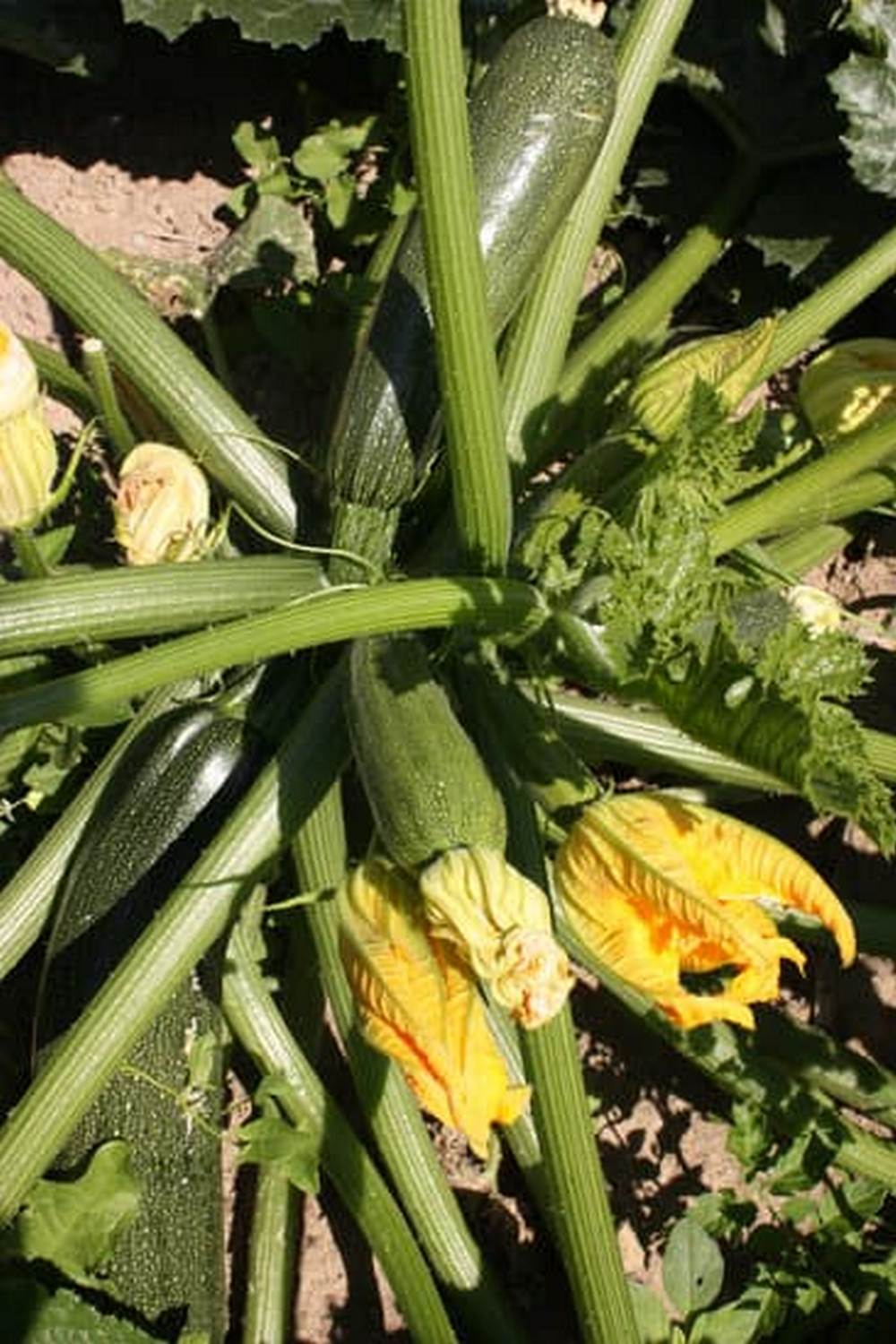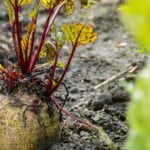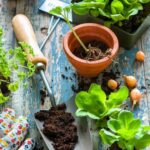Are you looking to maximize the growth and health of your vegetable garden? Look no further than bone meal and Epsom salt. These two organic additives are essential for promoting strong root development, preventing common nutrient deficiencies, and enhancing overall plant vitality. In this article, we will explore the benefits of using bone meal and Epsom salt in vegetable gardens, best practices for application, common vegetables that thrive with these additives, potential risks and precautions, as well as organic alternatives.
Bone meal is a natural fertilizer that provides a slow release of essential nutrients such as phosphorus and calcium, crucial for root development and overall plant health. On the other hand, Epsom salt (magnesium sulfate) is known for its ability to improve nutrient absorption, prevent yellowing leaves (a sign of magnesium deficiency), and promote fruit production in vegetable plants. When used together, these two additives create an ideal environment for thriving vegetable gardens.
In the following sections, we will delve deeper into the specific benefits of bone meal and Epsom salt in vegetable gardens, how to properly use them for optimal results, and which common vegetables can benefit the most from their application. Whether you’re a seasoned gardener or just starting out, understanding the power of these natural additives is key to maximizing your garden’s growth potential.
Benefits of Using Bone Meal and Epsom Salt in Vegetable Gardens
Bone meal and Epsom salt are two natural ingredients that offer numerous benefits for vegetable gardens. When used correctly, they can help improve soil quality, promote healthy plant growth, and increase the overall yield of your garden. Here are some key benefits of using bone meal and Epsom salt in vegetable gardens:
- Enhanced Nutrient Absorption: Bone meal is a rich source of phosphorus, which is essential for healthy root development and overall plant growth. When applied to the soil, it provides a slow-release form of phosphorus that can be readily absorbed by vegetable plants.
- Improved Soil Structure: Epsom salt, also known as magnesium sulfate, helps to improve soil structure by loosening compacted soil. This allows for better air circulation and water drainage, which are crucial for the health of vegetable plants.
- Pest and Disease Resistance: Both bone meal and Epsom salt can contribute to stronger, more resilient plants that are better equipped to resist pests and diseases. This can ultimately reduce the need for chemical pesticides and fungicides in your vegetable garden.
Incorporating bone meal and Epsom salt into your gardening routine can provide long-term benefits for your vegetable plants. Whether you’re growing tomatoes, peppers, cucumbers, or any other vegetables, these natural amendments can help support healthy growth and increase your harvest yield. By understanding the specific benefits that bone meal and Epsom salt offer, you can take proactive steps to maximize the potential of your vegetable garden.
Remember that while bone meal and Epsom salt offer several advantages for vegetable gardens, it’s important to use them judiciously and in conjunction with other best practices for gardening. Overuse or improper application of these amendments can lead to nutrient imbalances or other unintended consequences. In the following section on “How to Use Bone Meal and Epsom Salt in Vegetable Gardens,” we will explore the recommended methods for integrating these natural supplements into your gardening routine.
How to Use Bone Meal and Epsom Salt in Vegetable Gardens
Bone meal and Epsom salt are both valuable additives when it comes to vegetable gardening. Knowing how to use them properly can maximize their benefits and help your garden flourish.
Using Bone Meal
Bone meal is a great source of phosphorus, which is essential for root development in plants. When using bone meal in your vegetable garden, it’s important to mix it into the soil before planting. The general recommendation is to apply 5 pounds of bone meal for every 100 square feet of garden area. This will help provide a strong foundation for your vegetables to grow and thrive.
Applying Epsom Salt
Epsom salt, on the other hand, is rich in magnesium, which is crucial for chlorophyll production in plants. When using Epsom salt in your vegetable garden, you can either apply it directly to the soil or dissolve it in water and use it as a foliar spray.
For direct application, sprinkle about 1 tablespoon of Epsom salt around the base of each plant at planting time. As a foliar spray, mix 2 tablespoons of Epsom salt with 1 gallon of water and spray the solution onto the leaves every two weeks.
Combining Both
To get the most out of bone meal and Epsom salt in your vegetable garden, consider using them together during planting. Mix bone meal into the soil as directed and then incorporate Epsom salt into the planting hole when setting out transplants or seeds. This will ensure that your vegetables receive both essential nutrients right from the start and have a strong start towards healthy growth.
Overall, using bone meal and Epsom salt correctly can significantly benefit your vegetable garden by promoting strong root development and healthy foliage. By following these guidelines for their use, you can set your garden up for success from the very beginning.
Best Practices for Applying Bone Meal and Epsom Salt
When it comes to using bone meal and Epsom salt in your vegetable garden, there are certain best practices to keep in mind to ensure maximum benefits for your plants. Here are some tips for applying these natural supplements to your garden:
1. Proper Mixing: When applying bone meal and Epsom salt to your vegetable garden, it’s important to mix them into the soil thoroughly. This can be done by sprinkling the recommended amount of each supplement onto the soil and then using a rake or gardening fork to work them into the top few inches of soil.
2. Timing: The best time to apply bone meal and Epsom salt to your vegetable garden is during the planting or transplanting process. This allows the supplements to be readily available to the plants as they begin their growth process.
3. Diligent Watering: After applying bone meal and Epsom salt to your garden, be sure to water the area thoroughly. This helps to activate the nutrients in the supplements and encourages proper absorption by the plant roots.
4. Avoid Overuse: While bone meal and Epsom salt can provide valuable nutrients to your vegetable garden, it’s important not to overuse them. Follow the recommended application rates on the product labels to prevent any potential negative effects on your plants.
5. Consideration of Plant Needs: Different vegetables have different nutrient requirements, so consider the specific needs of the plants in your garden when applying bone meal and Epsom salt. For example, leafy greens like spinach and kale may benefit from a higher magnesium content provided by Epsom salt.
By following these best practices for applying bone meal and Epsom salt, you can ensure that your vegetable garden receives the maximum benefit from these natural supplements while promoting healthy growth for your plants.
Common Vegetables That Thrive With Bone Meal and Epsom Salt
When it comes to vegetable gardening, the use of bone meal and Epsom salt can significantly benefit the growth and health of your plants. By understanding which common vegetables thrive with the use of these natural additives, you can effectively enhance your garden’s productivity.
Tomatoes
Tomatoes are one of the most popular vegetables to grow in a home garden, and they greatly benefit from the use of bone meal and Epsom salt. Bone meal provides a natural source of phosphorus, which is essential for healthy root development and fruit production. Epsom salt supplies magnesium, which aids in chlorophyll production and overall plant growth. When applied properly, these additives can lead to larger, healthier tomatoes.
Peppers
Like tomatoes, peppers also benefit from the addition of bone meal and Epsom salt in vegetable gardens. The phosphorus from bone meal helps establish strong root systems for pepper plants, while the magnesium from Epsom salt supports photosynthesis and nutrient uptake. As a result, peppers grown with these supplements tend to be more robust and produce higher yields.
Squash
Squash plants, including zucchini and butternut squash, thrive with the use of bone meal and Epsom salt. These additives provide essential nutrients that support healthy growth, flowering, and fruiting in squash varieties. By incorporating bone meal and Epsom salt into the soil before planting squash seeds or transplants, you can promote abundant harvests throughout the growing season.
Incorporating bone meal and Epsom salt into your vegetable garden care routine can have notable benefits for a wide range of common vegetables. Whether you’re growing tomatoes, peppers, squash, or other popular crops, these natural additives can contribute to improved plant health and overall yield.
Potential Risks and Precautions When Using Bone Meal and Epsom Salt
When using bone meal and Epsom salt in vegetable gardens, there are several potential risks and precautions that should be considered to ensure the best results. While these products can provide numerous benefits, it is important to use them with care to avoid any negative effects on your plants or the environment.
One potential risk of using bone meal in vegetable gardens is overapplication, which can lead to an excessive build-up of phosphorus in the soil. This can result in nutrient imbalances and may harm certain plants, particularly those that are sensitive to high levels of phosphorus. It is essential to follow the recommended application rates provided on the product packaging and to avoid applying more than necessary.
In addition, when using Epsom salt for vegetable gardens, it is important to be cautious about salinity levels in the soil. Overuse of Epsom salt can increase soil salinity, affecting water uptake by plant roots and potentially causing dehydration and nutrient deficiencies. To prevent this issue, it is crucial to carefully measure and apply the appropriate amount of Epsom salt as directed.
Another precaution to consider when using bone meal and Epsom salt in vegetable gardens is their potential impact on groundwater quality. Excessive leaching of nutrients from these products into groundwater can contribute to pollution, so it is important to use them sparingly and responsibly. Additionally, if you have concerns about the environmental impact of bone meal production, you may want to explore organic alternatives for your garden.
Overall, while bone meal and Epsom salt can offer significant benefits for vegetable gardens, it is essential to approach their use thoughtfully and cautiously. By being mindful of potential risks and taking appropriate precautions, you can maximize the positive effects of these products while minimizing any adverse impacts on your garden or surrounding environment.
| Potential Risks | Precautions |
|---|---|
| Overapplication leading to phosphorus build-up | Follow recommended application rates; avoid excessive use |
| Increase in soil salinity from overusing Epsom salt | Measure and apply appropriate amount as directed; monitor soil salinity levels |
| Impact on groundwater quality from excessive leaching | Use products sparingly; explore organic alternatives if concerned about environmental impact |
Organic Alternatives to Bone Meal and Epsom Salt for Vegetable Gardens
While bone meal and Epsom salt are popular choices for promoting healthy growth in vegetable gardens, some gardeners may prefer organic alternatives for various reasons such as environmental concerns or personal preferences. Fortunately, there are several natural substitutes that can provide similar benefits without the use of synthetic chemicals.
One organic alternative to bone meal is fish meal, which is made from dried and ground fish. Fish meal is a great source of nitrogen, phosphorus, and potassium, making it an excellent fertilizer for vegetable gardens.
Another option is blood meal, which is derived from the blood of animals and is high in nitrogen. Both fish meal and blood meal can be used as top dressings or worked into the soil before planting to promote healthy root development and overall plant growth.
Epsom salt can be replaced with natural sources of magnesium such as kelp meal or greensand. Kelp meal is made from dried seaweed and contains not only magnesium but also a variety of trace minerals that are beneficial for plant health.
Greensand is a naturally occurring mineral that contains high levels of potassium, iron, and other essential nutrients. Both kelp meal and greensand can be mixed into the soil to improve its structure and provide necessary nutrients for vegetables to thrive.
| Organic Alternative | Benefits |
|---|---|
| Fish Meal | High in nitrogen, phosphorus, and potassium; promotes healthy root development |
| Blood Meal | Rich in nitrogen; enhances overall plant growth |
| Kelp Meal | Source of magnesium and trace minerals; improves soil structure |
| Greensand | High in potassium, iron, and other essential nutrients; provides necessary elements for plant growth |
Conclusion
In conclusion, incorporating bone meal and Epsom salt into your vegetable garden can significantly enhance the overall health and productivity of your plants. The benefits of using these natural additives are undeniable, from promoting root development to preventing nutrient deficiencies. By following the recommended practices for applying bone meal and Epsom salt, gardeners can ensure that their vegetables receive the necessary nutrients for optimal growth.
While bone meal and Epsom salt are excellent options for enhancing garden growth, it’s important to note that there are potential risks and precautions to consider. Overuse of these additives can lead to nutrient imbalances or toxicity in the soil, which may harm the plants rather than benefit them.
Gardeners should also be mindful of organic alternatives to bone meal and Epsom salt, as there are other natural methods for enriching the soil and boosting plant health without relying solely on these specific products.
Ultimately, by understanding how to properly use bone meal and Epsom salt in vegetable gardens, as well as being aware of alternative organic solutions, gardeners can maximize their garden growth effectively and sustainably. With proper care and attention to best practices, these natural additives have the potential to transform a vegetable garden into a thriving oasis of healthy, vibrant plants producing bountiful harvests.
Frequently Asked Questions
What Vegetable Plants Don T Like Epsom Salt?
Some vegetable plants that don’t like Epsom salt include brassicas like broccoli and cabbage, as well as leafy greens such as lettuce and spinach. These plants prefer a more acidic soil pH level.
Can You Sprinkle Epsom Salt on Vegetable Garden?
Yes, you can sprinkle Epsom salt on your vegetable garden, but it should be done in moderation. Too much Epsom salt can disrupt the balance of nutrients in the soil, so it’s important to follow recommended guidelines for application.
Do Tomatoes Like Epsom Salts?
Tomatoes are reported to benefit from the use of Epsom salts due to its magnesium content. It is believed that by adding Epsom salt to the soil, tomatoes can have improved nutrient uptake and potentially prevent certain deficiencies.

If you’re looking to get into vegetable gardening, or are just looking for some tips on how to make your current garden better, then you’ve come to the right place! My name is Ethel and I have been gardening for years. In this blog, I’m going to share with you some of my best tips on how to create a successful vegetable garden.





